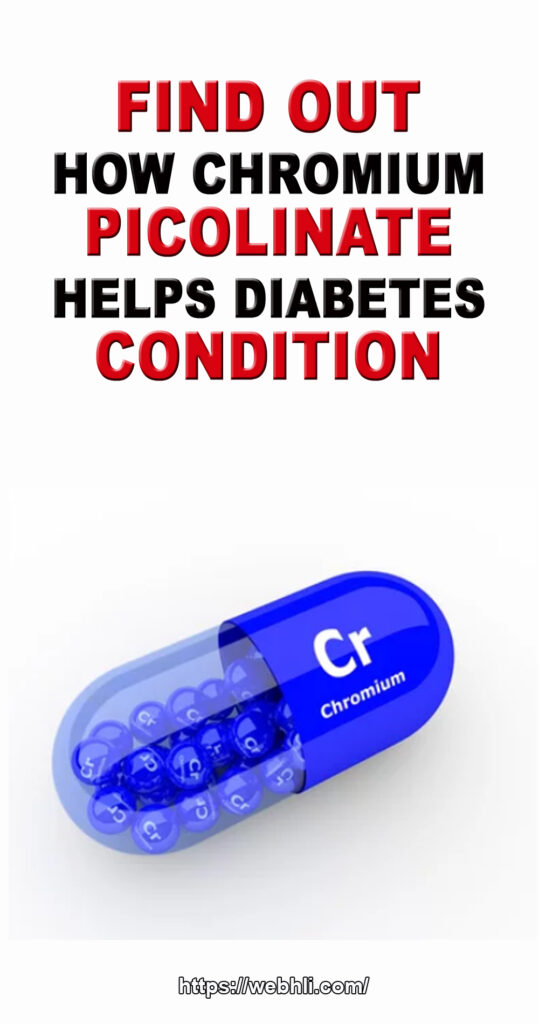
Supplementation with a form of the trace mineral chromium called chromium picolinate is prudent nutritional therapy for your patients with diabetes and pre-diabetes.
A follow-up study by some of the same researchers monitored 833 type II diabetes patients who took 500 mcg chromium picolinate twice daily: a significant reduction in fasting blood sugar levels and in post-meal blood sugar levels was found during the ten months of the study. No negative side effects were shown from taking the supplements. In addition, more than 85 percent of the patients reported improvements in the common diabetic symptoms of excessive thirst, frequent urination and fatigue.[iii]
Although the incidence of type II diabetes is increasing in record numbers, many people don't yet have diabetes but are at high risk for developing it. Chromium supplements can help in these cases, too. A study directed by William Cefalu, M.D., of Wake Forest University, monitored individuals at risk-people who were moderately obese and had a family history of diabetes. Some people received a placebo; others, 1,000 mcg of chromium picolinate daily. After four months of treatment with chromium, insulin resistance was reduced by 40 percent.[iv] Chromium supplements, therefore, help reverse the underlying disease process that leads to type II diabetes. In other words, they help both prevent and reverse Type II diabetes
Check out these related articles, too:
What Is Diabetic Gastroparesis?
Healthy Lifestyle Tips For Type 2 Diabetes
Does protein increase blood glucose levels?
How Does Diabetes Affect My Teeth and Gums?
What is the best way to manage diabetes?
Chromium picolinate's benefits for other types of diabetes patients Many diabetes patients who inject insulin-both type I diabetes patients, and type II diabetes patients who are in more advanced stages of the disease-respond positively to chromium picolinate supplementation. About 70 percent of both types of diabetes patients show improved insulin responsiveness after taking 200 mcg supplemental chromium per day. Some experience such improved insulin sensitivity that they are able to reduce the amount of insulin they inject or the amount of other blood-sugar-lowering medications they take.[v]
Chromium supplementation has been found helpful for still other types of diabetes. Gestational diabetes is a transitional diabetes that develops during pregnancy and can cause numerous health problems, including loss of the child. It's the most common medical complication of pregnancy today. According to one study, just eight weeks of supplementation with chromium picolinate can significantly improve glucose intolerance and reduce blood sugar and insulin levels in those with gestational diabetes, thereby reducing the risk of health trouble for both mother and child.[vi]
The use of certain pharmaceutical drugs, such as corticosteroids or Thiazide diuretics, lead to significant chromium losses and can also sometimes induce diabetes-like conditions. Fortunately, chromium supplementation can lead to improvements in the body's handling of blood sugar in both cases. In one study, steroid-induced diabetes was ameliorated in 38 of 41 patients following supplementation of 200 mcg of chromium three times per day. This occurred even though blood-sugar-lowering drugs were reduced 50 percent in all patients who were given chromium supplements.[vii]
Basics about Chromium and Supplementation Dosages
Although researchers still don't know exactly how chromium does its magic, chromium helps insulin work more efficiently to allow blood glucose to move from the blood into the cells. The Recommended Daily Allowance Committee recommends 50-200 mcg of chromium per day. This amount seems reasonable for the average healthy person, but higher amounts are needed for people with conditions involving insulin resistance, such as type II diabetes and pre-diabetes. Type II diabetes patients who have taken chromium picolinate in low doses-200 mcg per day-have had some improvement in their condition; however, they have not the same spectacular results as type II diabetes patients who have taken 1,000 mcg per day.
Unfortunately, the vast majority of Americans doesn't obtain even the minimum 50 mcg of chromium from their daily diets. Research from the USDA found that men average 33 mcg of chromium per day in their diets and women average 25 mcg per day.[viii] Even diets, designed to be well balanced by nutritionists, almost always contain less than 50 mcg of chromium.[ix]
The amount of chromium that people need varies. It depends primarily on their intake from foods and their state of health. Those who are most lacking in the nutrient need it the most.[x] It's also important to understand that type II diabetes patients have altered chromium metabolism-greater excretion of chromium, lower tissue levels of chromium, and less of an ability to convert chromium into a usable form in the body.
10 Simple Food Concepts Every Person Living With Diabetes Should Know
Making Cheesecake For Diabetics
Enjoy the Taste and Benefits of Diabetic Foods
Will The Mulberry Leaf Help Your Diabetes?
In animal experiments, chromium has demonstrated a lack of toxicity at extremely high levels-levels several thousand times the estimated safe and adequate daily dietary intake (ESADDI) limit of 200 mcg per day. There is no evidence of toxic effects related to chromium supplementation in chromium supplementation in humans or animals.
For all of these reasons, I think supplementation with chromium picolinate is a must to try with diabetes patients. It's a prudent, safe, well-tested nutritional approach that more often than not will offer your patients impressive benefits in their condition and their symptoms.
Article Source: http://EzineArticles.com/864194


 Protected by Patchstack
Protected by Patchstack